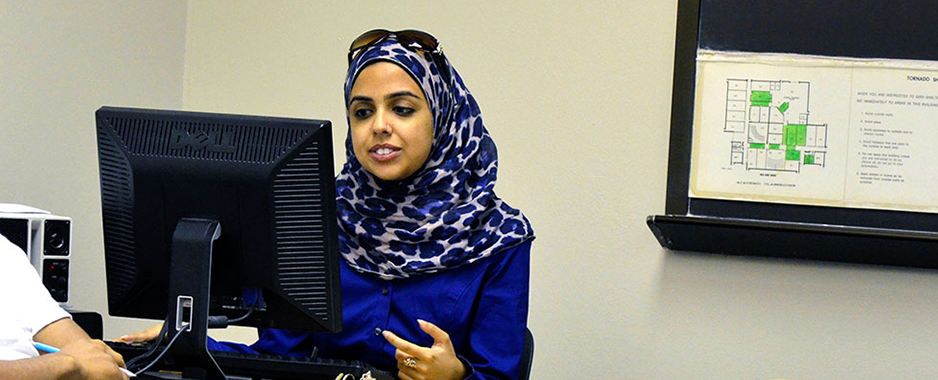By Jesse Lopez/reporter
One NW English instructor strived to help students feel empowered Sept. 11 in Writing Effective Essays.
Students walk into their classes on the first day, take a look at the syllabus, realize they have an essay as part of the class and more than likely feel a sense of dread, Liz Lounsbury said.
“Often, students are taught to think there is only one correct way to write a paper as if it is a math problem,” she said. “But in truth, there is not a correct way to write a paper, just simple steps to follow.”
In knowing the correct format to writing an effective essay, Lounsbury said, students can use the formula to write one for any class.
After the topic is chosen, students should start the pre-writing process. Whether one chooses to brainstorm, map or free-write, they should take the time to allow the mind the freedom to be creative. In allowing that creativity, one may find a new, exciting direction to take the essay, she said.
When starting the research, students should stay away from the common Googling, Lounsbury said. Instead, they can use the resources available in the TCC databases. Not only do students have access to hundreds of them, they are also getting credible sources.
With research complete, it’s time to put the ideas into an outline. Most students think outlining is far more time-consuming, but in actuality, it makes the process go faster because writers are creating a road map to follow, funneling ideas, Lounsbury said.
And if it’s a good outline, writers can simply flesh it out to make the first draft.
Now comes writing the paper, which, of course, has an introduction, body and conclusion. Along with that, Lounsbury suggested starting with the strongest argument or idea. Although many writers like to end with the strongest idea, once the reader is captured with the introduction, writers should keep their attention by “hitting them with your big guns” to draw them in, Lounsbury said.
Once the paper is done, students should take the time to proofread it. Lounsbury advised trying other methods rather than simply reading it over: reading it out loud, having someone else read it or using the writing lab.
By following those basic steps, students will find themselves a little less overwhelmed and find their grades getting better, Lounsbury said. Everyone has strengths and weaknesses, so students should play to their strengths.
“One way or another you will survive,” she said. “I’ve never read on a death certificate: death by essay.”





























